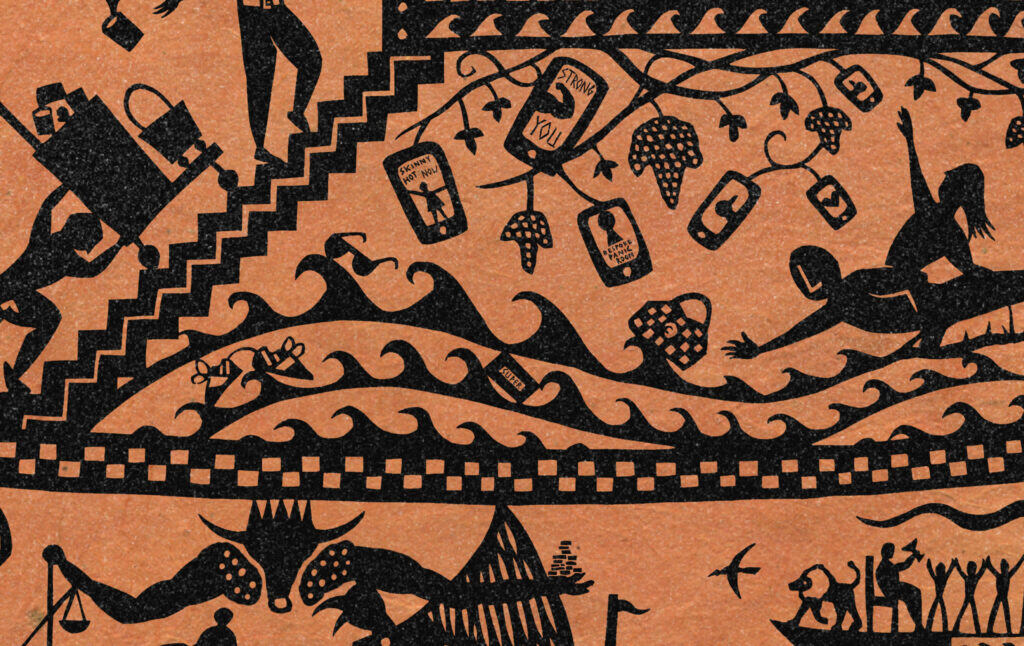
Some Prescient Ancient Greek Punishments
Mythology gives us many rich examples of misfortune and punishment that we would do well to recall and, in some cases, revive.
Despite reigning long before the advent of modern economics, the Greek gods would hardly be out of place in today’s working world. Indeed, a shocking new discovery by archaeologists at the University of Diaskedasi in Greece confirms that the Olympians had considerably more in common with twenty-first century capitalists than archaeologists and classicists had previously thought.
Arachne

In his 2002 book The Rise of the Creative Class, economist Richard Florida pronounced the advent of a new group “whose economic function is to create new ideas, new technology, and new creative content.” He might have been thinking of Arachne, pictured here. When Arachne attempted to bring her beautiful and subversive art into the workplace, Athena assigned her to the social media department, where she was forced to churn out tedious corporate memes for mass consumption. Radiocarbon scanning reveals she is making a minor tweak to a sans serif brand logo.
Sisyphus

This image depicts Zeus punishing Sisyphus by forcing him to eternally repeat a task he can never finish. What is astonishing about this particular image is that it reveals that Sisyphus, long a byword for labor that’s both grueling and disheartening, was contemporaneously regarded as the patron-hero of cleaners and sanitation workers, who manage to make everybody’s workplaces just about tidy by the end of their shifts—but then find the same filth and neglect waiting for them the next day.
Actaeon

When the heroic Actaeon stumbled upon potentially embarrassing secrets, Artemis feared he would expose her. Therefore, she used her powers to threaten and intimidate him into silence: i.e., sicced her lawyers on him. The moral of the story remains universal: if you speak up against the powerful, get ready to run.
Prometheus

Prometheus, a popular subject of Greek iconography, is here portrayed as the quintessential disruptor. His exceptional achievements changed history and lit a fire under his whole department. Yet his only reward was more work, and endless torment. This is a warning about demonstrating too much aptitude: the price of bringing fire to humanity is to be chained to a desk while rapacious vultures eat your life.
Tantalus

Here we see Tantalus, the root of the word “tantalize.” He is forever tormented by “lifestyle” creep, desiring luxuries that remain permanently out of reach. Would it be cool, you may ask, to have a beach house, a slick watch, and cookware forged from the shards of Narsil? Sure! Will we ever be able to afford any of those things? Just ask Tantalus.
Erysichthon

Erysichthon, seen here, is a lesser-known figure from Greek mythology: a rich man who did not believe he was wealthy. (In modern terms, he would be one of the eighty-seven percent of millionaires who, according to a 2019 survey, just don’t feel rich.) In Erysichthon’s case, this delusion originated with Demeter, who cursed Erysichthon to feel a greed that no amount of consumption could ease. He was last seen devouring his own flesh in a fit of frustration. Classicists now believe that this is the origin of the contemporary dictum: “eat the rich.”

Words by Eli Horowitz. Art by Andrew Benincasa.




